One of the very first programs I “wrote”, and by that I mean “copied by hand from a book”, was a BASIC version of ELIZA, the famous “chat” program by Joseph Weisenbaum. I was a kid, just learning to program, and this sent me down a spiral into the history of artificial intelligence where I learned about the Turing Test, created by Alan Turing in 1950, which says, simplified, that the goal of natural language processing is to create a chat program such that, if a person is sitting at the other end, that person can’t tell if they’re talking to a human or a computer.
Well, it’s been 70+ years at this point and man are we getting close. There’ve been a million chat programs and competitions since then, I’ve played with a lot of them, and they’ve all been quite terrible. In fact if you’re trying to break one – after all it is a test, not a game – it’s usually pretty easy. But if you’re not? If you honestly just want the content that comes from a conversation, with back and forth question and answer? Wait’ll you get a load of ChatGPT.
As I always do, I just walked up and started hitting it with Shakespeare questions. I wasn’t trying to trick it, I was just asking what I thought might be interesting exploration of what it could be expected to do. What follows is unedited transcript.
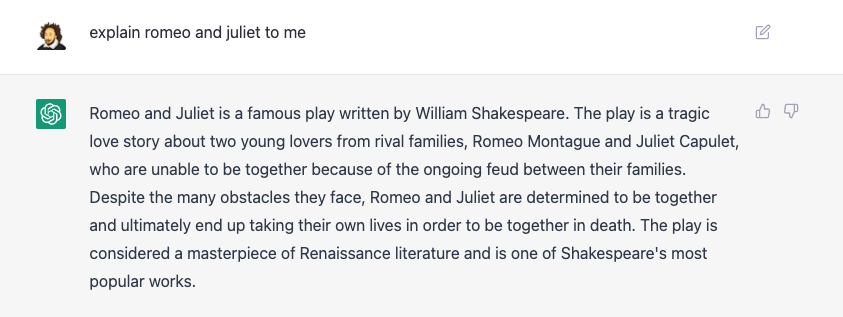
I started out with an easy one. And I got back an easy response. It’s probably not copied from Wikipedia, but it reads like it could have been. I didn’t expect much.
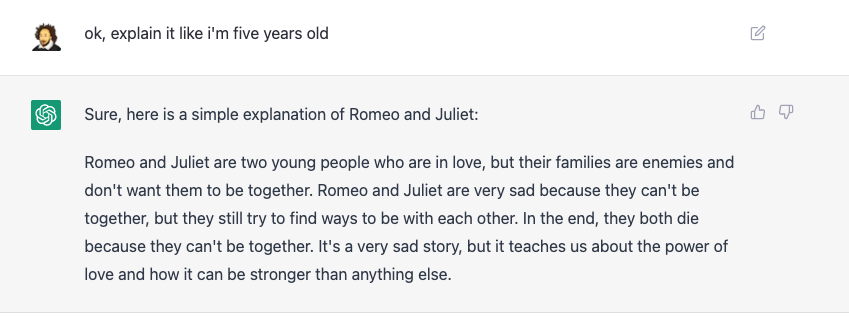
That was kind of cool. I not only got an answer, I got a reasonable and grammatically correct answer. Often in the older versions of these chat engines, trying to express something in a different way meant just doing some dumb word swapping. This one’s maybe doing a little of that (“tragic” = “very sad”) but it does a lot more than swap out words.
Ok, let’s make it a little more challenging.
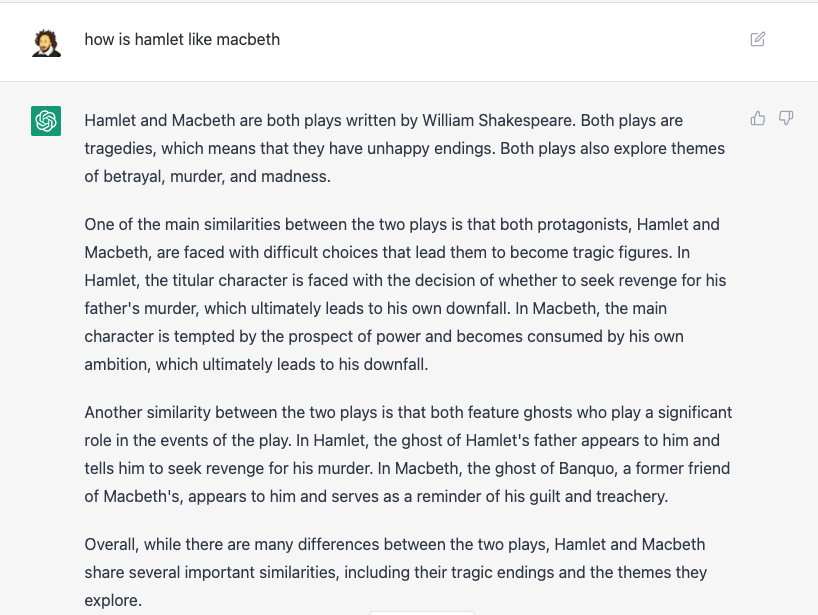
Fascinating. Again, like the first question it feels very Wikipedia-like. But it’s serving these answers up in a matter of seconds. And it’s not like this things got a database of what people might ask. I’m relatively certain I’m one of the few people drilling down on random Shakespeare combinations.
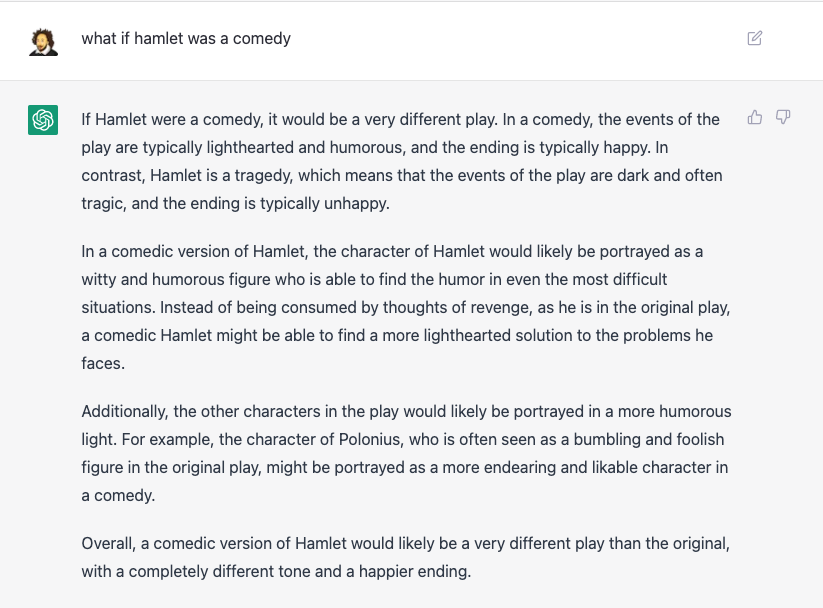
I don’t know what I expected here, but I like this answer. It implies strongly that this thing understood my question, understands not only the characters of Hamlet but the elements of tragedy and comedy, and makes a valiant attempt to offer suggestions about how they might fit together.
Ok, two more then I want to go back and play with it some more.
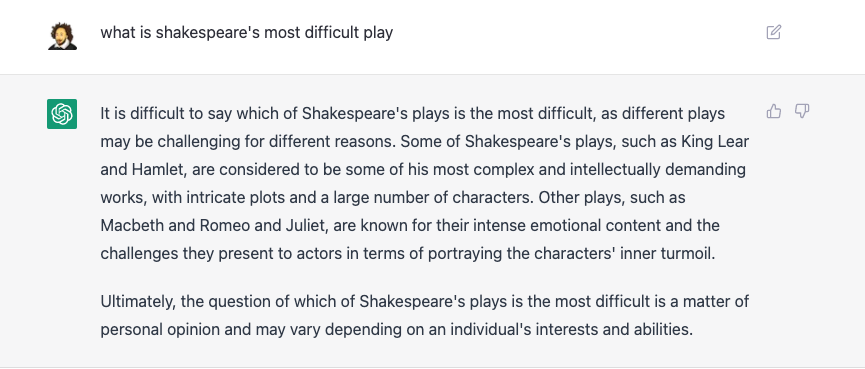
I don’t know why people keep getting so excited about using this thing to generate original content – it’s not going to offer opinions, and it knows when that’s what you’re asking. So this heavily suggests that all we can ever really get out of it (well, for now) is factual responses.
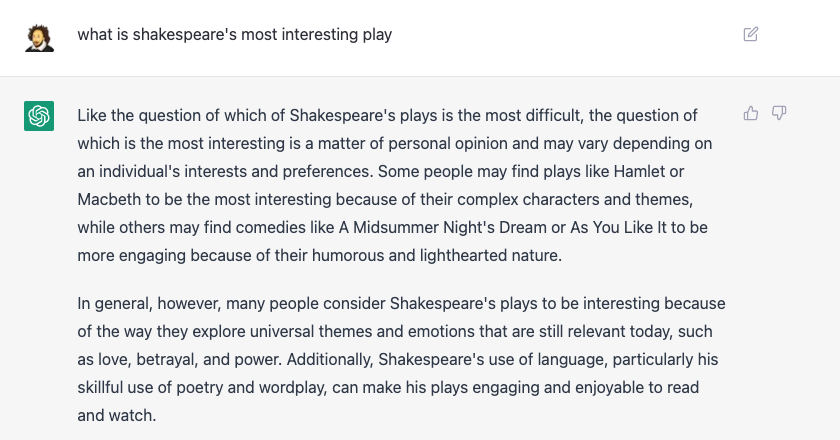
This is basically the same question, yes. But do you see why I left it in here? It literally tells me, “You just asked me the same question in a different way.” So not only is it doing a ridiculously impressive job answering the questions, but it’s keeping your conversation in context and using that as part of the answer.
I wasn’t terribly impressed by the art generators that were all the rage a few months ago. This, on the other hand. I could talk to this thing all day.
